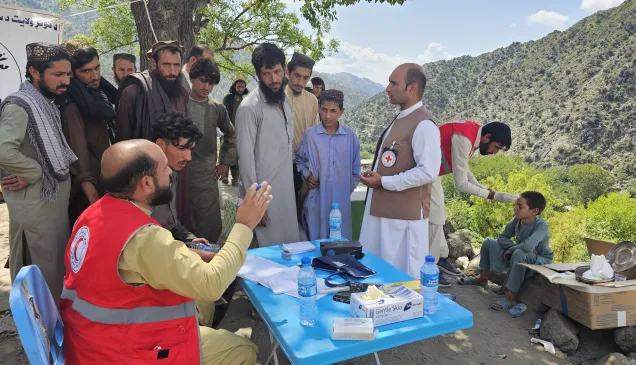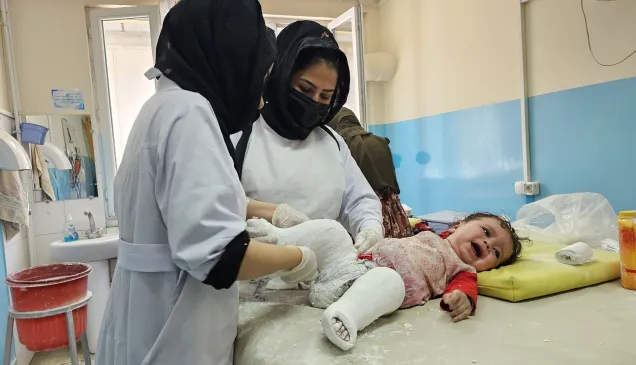International Committee of the Red Cross calls for humanitarian carve-out in UN Security Council 1988 Afghanistan sanctions regime
ICRC statement to United Nations Security Council Special Joint Meeting on terrorist financing threats and trends and the implementation of UN Security Council resolution 2462 (2019) as delivered by Ms. Laetitia Courtois, ICRC Permanent Observer to United Nations
Thank you very much, Madam Chair.
We appreciate the opportunity to be with you today, especially as these Committees are expected to take action in the next month and a half.
Distinguished colleagues,
Afghanistan is in a freefall. The banking system struggles to function. Salaries are not being paid. People are losing their source of income while at the same time the cost of basic food is skyrocketing. One in three persons does not know where their next meal is coming from. More than 22 million Afghans will face crisis or emergency levels of acute hunger between November and March 2022, according to the latest IPC report.
The ICRC has seen a recent surge in children needing care at the health facilities we support. We are looking to scale-up our response, which we hope will provide some stability, as we are deeply concerned about the risk of collapse of basic services, notably of the health sector. Afghanistan's healthcare infrastructure is crumbling. In practical terms, cash shortages mean that medical structures are not able to pay for fuel to run generators, ambulances, to provide food for patients, and to pay for the salaries of their personnel.
Foreign assistance is currently put in question as donors ask themselves how they can comply with their legal obligations stemming from the 1988 sanctions regime, which lists many members of the current leadership in Afghanistan, including at the highest levels. Simply put, some donors feel they have a difficult choice – either comply with the 1988 sanctions regime and their own law, thereby denying life-saving assistance, or provide such assistance through organizations such as the ICRC and others. Private donors, suppliers and banking services will have similar impediments.
Today we are calling for a clear carve-out in the 1988 sanctions regime for impartial humanitarian organizations engaged in exclusively humanitarian activities, and for its translation into domestic legislation. The situation in Somalia in 2010 led to a carve-out in that regime, and the need for doing so for Afghanistan now exists. It is in everyone's interest to see humanitarian activities operating smoothly in Afghanistan. While the 1988 regime has exemptions for listed individuals to use their own money for medical care, no exception currently exists for organizations who seek to provide assistance to millions of people in need.
Turning to 1267, this is a regime with far-reaching impact, covering persons and entities in dozens of countries. It is therefore more critical than ever that during the upcoming renewal more protective language for humanitarian action is included. We have language recommendations to provide to Council Members as negotiations continue.
In closing, I would stress the importance of striking a proper balance between sanctions measures and protections for humanitarian action. We rely on the international community to facilitate the undertaking of humanitarian activities and ensure that these are not conditioned on political considerations.
Thank you very much, Madam Chair.



